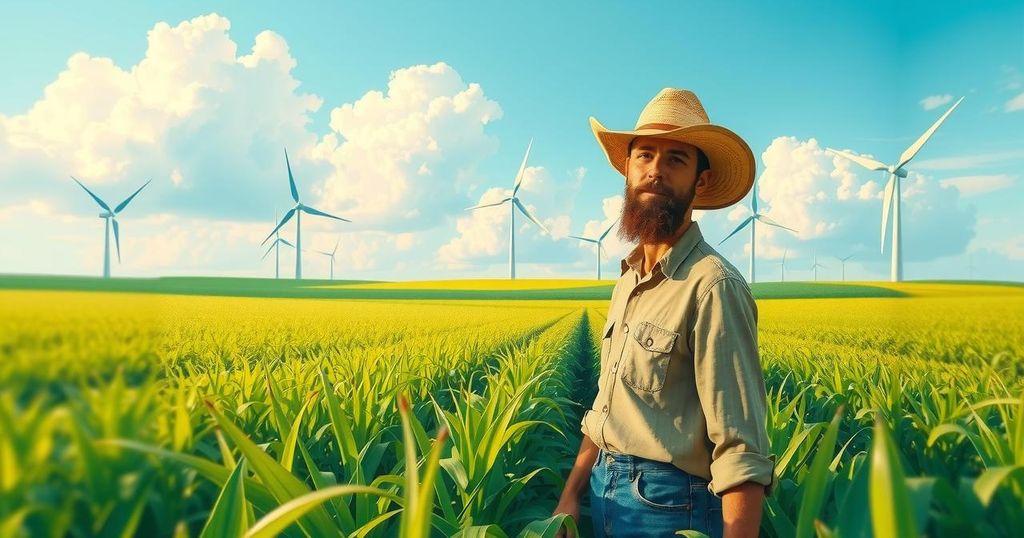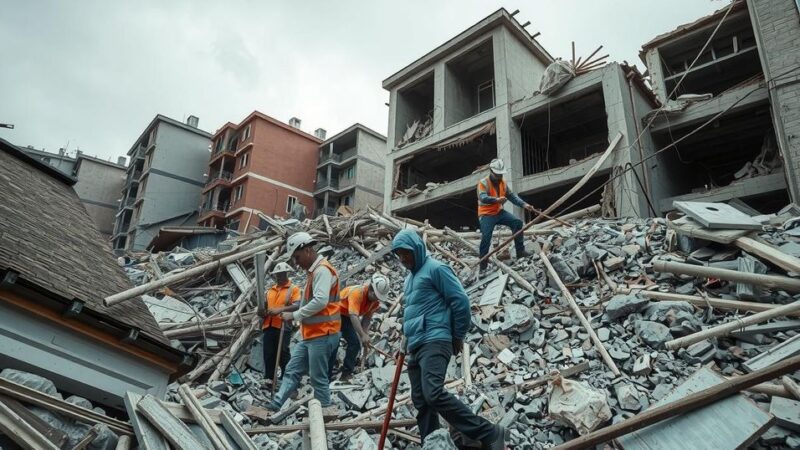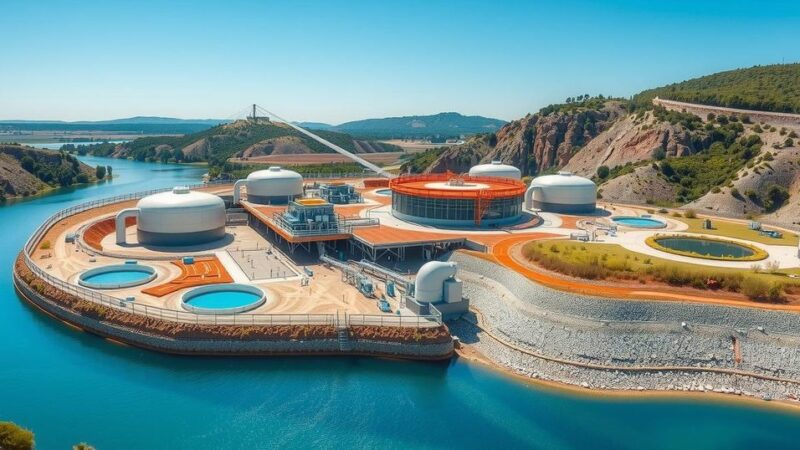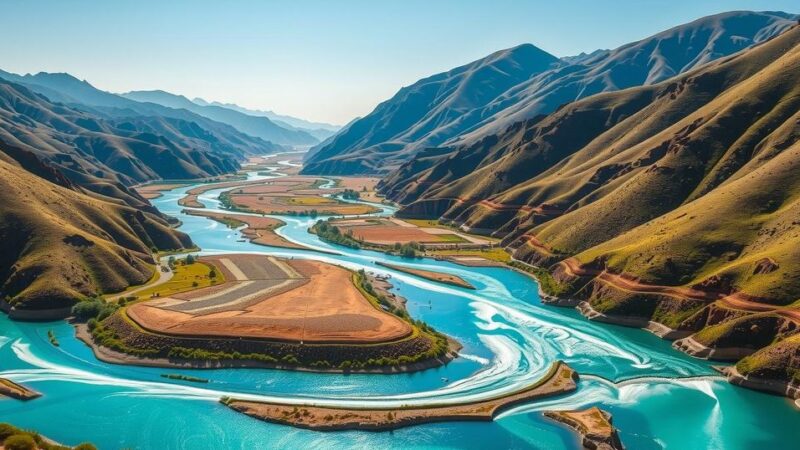A Peruvian farmer, Saul Luciano Lliuya, is suing German energy giant RWE in a landmark lawsuit concerning climate change and its impacts on his home. Lliuya argues that RWE’s emissions contribute to the overflow danger of a mountain lake near his city, requesting compensation for protective measures. This case, the first of its kind among many global lawsuits, seeks accountability from major polluters amidst the risks faced by communities in Huaraz, Peru.
The landmark climate lawsuit begins in a German court, where a Peruvian farmer, Saul Luciano Lliuya, confronts the German energy company RWE. Lliuya, residing in Huaraz, faces the imminent threat of his home from the overflow of a mountain lake fueled by glacier meltwater, exacerbated by climate change issues.
In Huaraz, located in the Peruvian Andes, Palcacocha Lake has become increasingly perilous, holding 35 times its normal water volume. Should it overflow, it could devastate Lliuya’s home and endanger around 50,000 residents. Lliuya’s legal strategy utilizes a German property law typically employed against troublesome neighbors to pursue accountability from RWE, a major contributor to greenhouse gas emissions.
With the backing of Germanwatch, a nonprofit organization, Lliuya calculated that RWE is responsible for 0.47% of human-induced carbon emissions since its inception in 1898. This figure underpins his request for approximately $18,000 to help fund a protective dyke intended for Huaraz. This case represents a significant step in the ongoing legal pursuits concerning climate change accountability, being the first of nearly 50 similar actions worldwide.
RWE refutes any legal responsibility, asserting that climate change is a widespread issue stemming from multiple sources, and indicates that addressing the crisis lies in the hands of government policy rather than the judiciary.
Residents in Huaraz are acutely aware of the risks posed by climate change. Historical events, such as the 1970 landslide that resulted in 25,000 fatalities, underscore the urgent threat. Communities in the region also experience diminishing water supplies, changing weather patterns that complicate agriculture, and increasing pest populations due to climate shifts.
Saul Lliuya expressed his concerns regarding the climate crisis, stating, “It is scary, the risk from climate change. For example, it has been raining. Even the rivers that pass through the city have risen. There is a lot of fear and the lake’s levels have risen. People are very worried.” Francesca Mascha Klein, a lawyer from Germanwatch, asserted the need for accountability among polluters: “We want Saul and the people of Huaraz to live in safety. No one should live in fear of losing their home due to the climate crisis.”
The court proceedings are taking place near RWE’s corporate headquarters in Hamm, Germany, and are expected to continue for several weeks, marking a pivotal moment in the movement for climate justice.
In summary, Saul Luciano Lliuya’s legal case against RWE represents an important intersection of climate justice and legal accountability. As he seeks compensation for future protective measures against potential disasters from climate change impacts, this lawsuit highlights the broader implications for environmental law worldwide. The case may establish a vital precedent for similar actions addressing the responsibilities of large polluting corporations in the face of climate change.
Original Source: www.wkyufm.org






